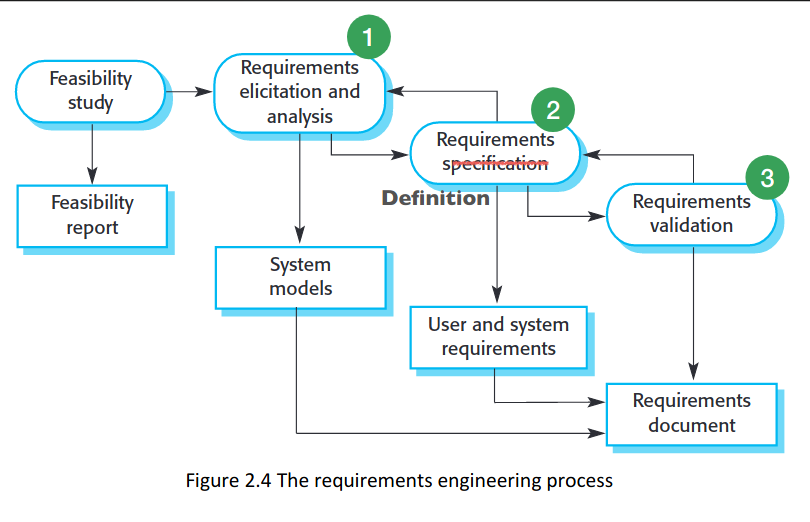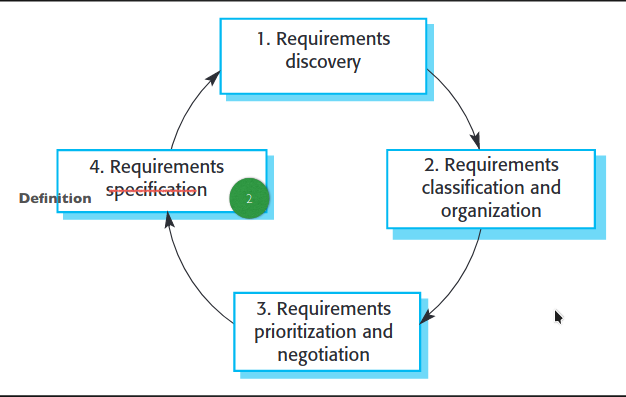22.02.07 - Requirements
Why requirements are important
Requirements are normally the problem Incomplete requirements and lack of user involvement rank top of the list of causes of project failure Understand product requirements is the major problem in software development Coding or programming is not a major problem
Difficult to to build the software exactly how its wanted. Cheaper to find and fix errors in requirement stage rather than maintenance stage
The problem
Understanding 'stakeholder' requirements is key to effective systems development Have to learn how to identify their requirements Need to be able to determine them, by working with clients
Requirements engineering

Requirements Elicitation

Initial Methods
Breaking down the requirements,
- Personas and user profiles
- Requirements gathering
- Task analysis
- Contextual enquiring
Stakeholder Analysis
Determine all the people that will use the system Mixture of
- working with initial briefs
- problem analysis
- interviews/discussions Have to identify the different types of stakeholders e.g. primary,secondary, tertiary Different ways of classifying/analysing then
- Importance/Priority
- Impact of their needs
Personas
Represents a real type of user from your stakeholders Main Aim: Personas should differentiate stakeholders clearly Identify: motivations, expectations Usage: Help you to put yourself in the shoes of.. Ideally: Try to have a small number - all one page at most
Not a report on real people from the client company, choose generic representative. Create a few that demonstrate key user types Might be several stakeholders can be represented by one - lectures/module convenors etc Whereas might be that one type needs several personas - regular gamers, casual gamers
Externalisation - SE mistakes are often from 'what was not said and not documented'
Use Case Diagrams
Need to elaborate the tasks that each stakeholder will do They represent the people who use the system and the tasks they have to perform People = 'actors'
Use case can be an extension of a task (that should have been done first) Some tasks may necessarily include other tasks